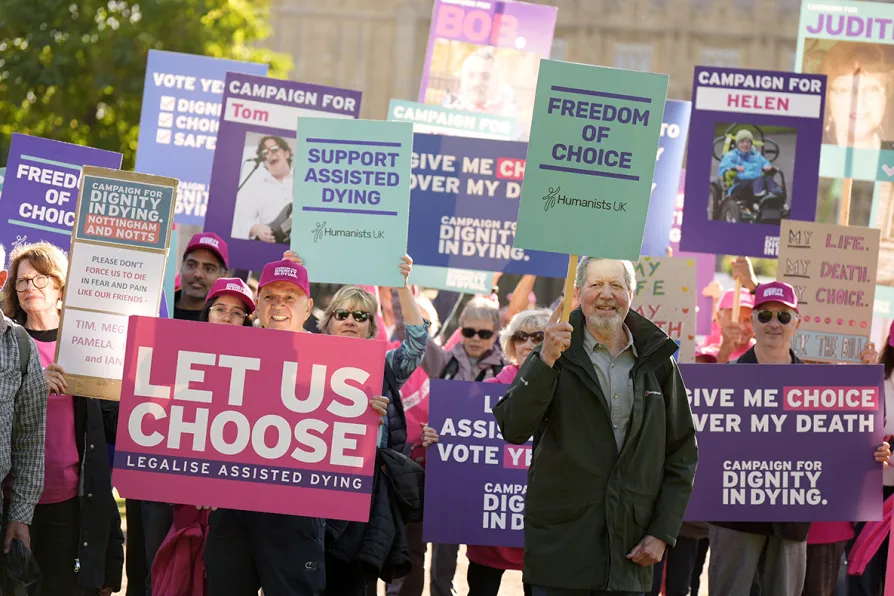
 Pro-assisted dying campaigners outside the Houses of Parliament, London, ahead of Assisted Dying Bill being debated in the House of Lords for the first time, September 12, 2025
Pro-assisted dying campaigners outside the Houses of Parliament, London, ahead of Assisted Dying Bill being debated in the House of Lords for the first time, September 12, 2025
BRITAIN’S equalities watchdog raised fresh concerns about the assisted dying Bill today as the controversial legislation was debated in the Lords.
The Equality and Human Rights Commission (EHRC) said peers need a more detailed assessment of how the proposals could affect society’s most vulnerable groups before deciding whether to change the law.
Peers packed the House of Lords today as members debated the divisive Terminally Ill Adults (End of Life) Bill for the first time.
A record number of speakers were expected to contribute during the two-day session, which began with peers being told they were participating in a “historic occasion.”
Former lord chancellor Lord Charlie Falconer, sponsoring the legislation in the upper house, said: “The House is full this morning. That reflects the seriousness with which the Lords takes this issue.”
He branded the current law “confused” and argued it “causes terrible suffering and lacks compassion and safeguards.”
The Bill would apply in England and Wales and, if passed, would make assisted dying available to adults diagnosed with a terminal illness and a prognosis of less than six months to live.
Supporters of the Bill have described it as one of the safest in the world, requiring approval by two doctors and an expert panel.
But opponents, including disability campaigners, faith groups and some medical professionals, warn that vulnerable people could be put at risk of coercion or pressure to end their lives early.
Concerns have also been raised that Parliament is being rushed into approving legislation without enough time for proper scrutiny.
The EHRC told peers that more detail is needed about how the Bill might affect people from different backgrounds, particularly those with protected characteristics such as age, disability, religion or belief, and race.
It highlighted evidence gaps around health inequalities, cultural or religious attitudes, and access to assisted dying services.
The watchdog also warned about the “great difficulty” of accurately predicting how long someone with a terminal illness will live, urging peers to consider this before granting medical professionals new powers.
Around 190 peers have put their names down to have their say, and if they all speak across the two-day debate, the number would surpass the previous record of 187 for the EU Withdrawal Bill’s second reading in 2018.
Peers will gather again on September 19 for the second part of this stage of the debate.

DANIEL GOVER considers the procedural complexities awaiting a Private Member’s Bill in its passage through Commons and Lords












